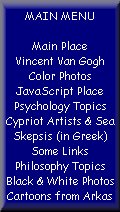MOTIVATION AND EMOTION
MOTIVATION AND EMOTION
| •
MOTIVATION - need or desire to act a certain way to achieve a goal
1. Range of motives a. Physiological - hunger, thirst, pain avoidance b. Social - learned c. Maslow - motives organized in a hierarchy of needs - physiological, safety, love and belonging, esteem, self-actualization 2. Motivational system -set of motives and behaviors that operate in a particular life area a. Hunger and eating i. hunger signals - stomach contractions, hypothalamus, environment ii. food preferences - cultural, personal and biological origins b. Sexual motivation - hormones c. Work i. extrinsic motivation - working for external reward ii. intrinsic motivation - working for pleasure of activity itself • EMOTION 1. Defining features of emotions - Subjective experience, Physiological arousal, Expressive behavior, Changes in cognition 2. Inborn - people from different cultural backgrounds can identify emotions as shown in photo 3. James-Lange Theory - emotion is a result of perception of bodily changes and behaviors 4. Cannon Bard Theory - emotion is a result of perception of a stimulus which causes both physiological changes and subjective feelings 5. Cognitive Labeling Theory - emotion is a result of the interpretation of the causes of physiological arousal 6. Frustration-aggression hypothesis - aggression results from blocking of efforts to achieve a goal |

|